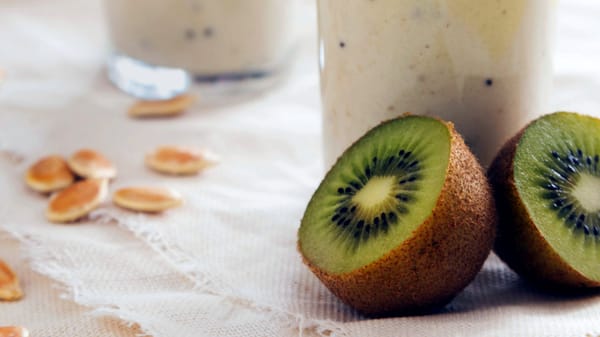Balancing Skincare Nutrition and Lifestyle For a Healthier You

Healthy skincare requires more than just creams and masks. It involves incorporating a balanced lifestyle and nutrition to achieve the best results.
In this article, we will explore the intricate relationship between skincare, nutrition, and lifestyle, providing practical tips and recipes to improve your overall well-being.


Nutrition For Healthy Skin
A healthy skin diet is rich in foods that provide essential nutrients, such as omega-3 fatty acids, antioxidants, and vitamins. These nutrients help to protect the skin from damage, promote collagen production, and support skin cell growth.
Foods for Healthy Skin
Some of the best foods for healthy skin include:
- Fatty fish, such as salmon and sardines, which are rich in omega-3 fatty acids
- Leafy greens, such as spinach and kale, which are rich in antioxidants and vitamins
- Nuts and seeds, such as almonds and chia seeds, which are rich in healthy fats and antioxidants
- Berries, such as blueberries and raspberries, which are rich in antioxidants and vitamins
- Avocados, which are rich in healthy fats and antioxidants
Recipes for Healthy Skin
Here are a few recipes that incorporate some of these skin-healthy foods:
Grilled Salmon with Avocado Salsa Ingredients:
- 4 salmon fillets
- 2 ripe avocados, diced
- 1 red onion, diced
- 1 jalapeño pepper, seeded and finely chopped
- 1 lime, juiced
- Salt and pepper to taste
Instructions:
- Preheat grill to medium-high heat.
- Season salmon fillets with salt and pepper.
- Grill salmon for 4-6 minutes per side, or until cooked through.
- In a bowl, combine diced avocado, red onion, jalapeño pepper, and lime juice.
- Serve salsa over grilled salmon.
Spinach and Berry Smoothie Ingredients:
- 2 cups fresh spinach leaves
- 1 cup frozen mixed berries
- 1/2 cup unsweetened almond milk
- 1 tablespoon chia seeds
- 1 tablespoon honey
Instructions:
- In a blender, combine spinach leaves, frozen berries, almond milk, chia seeds, and honey.
- Blend until smooth and creamy.
- Pour into a glass and serve immediately.



Lifestyle Influence on Skin
Stress, Sleep, and Exercise: The Unseen Factors Affecting Skin Health
While nutrition plays a significant role in maintaining healthy skin, lifestyle factors such as stress, sleep, and exercise also have a profound impact on skin health. Chronic stress can lead to inflammation, causing skin issues like acne, rosacea, and eczema. On the other hand, regular exercise can improve circulation, boost collagen production, and enhance overall skin health.
Reducing Stress for Better Skin
High levels of stress can lead to skin problems, but there are ways to manage stress and promote healthy skin. Some effective stress-reducing techniques include:
- Meditation and mindfulness: Regular mindfulness practices can help reduce stress and promote relaxation.
- Yoga and deep breathing exercises: These practices can help calm the mind and body, reducing stress and anxiety.
- Journaling and reflection: Writing down thoughts and emotions can help process and release stress.

Getting Enough Sleep for Glowing Skin
Adequate sleep is essential for skin health, as it allows the skin to repair and regenerate itself. Poor sleep habits can lead to puffy, dull-looking skin, while sufficient sleep can leave skin looking radiant and refreshed. To promote healthy sleep habits:
- Establish a consistent sleep schedule: Go to bed and wake up at the same time each day.
- Create a relaxing bedtime routine: Avoid screens and electronics before bedtime, and opt for calming activities like reading or meditation.
- Optimize your sleep environment: Make your bedroom a sleep sanctuary by ensuring it is dark, quiet, and cool.
Exercise for Healthy Skin
Regular exercise can improve skin health by boosting circulation, reducing inflammation, and promoting collagen production. Aim for at least 30 minutes of moderate-intensity exercise per day, and incorporate activities that bring you joy and relaxation.
Skincare Routine Basics
Establishing a Consistent Skincare Routine
A well-structured skincare routine is essential for maintaining healthy and radiant skin. This routine should include three fundamental steps: cleansing, moisturizing, and sun protection. Each step plays a vital role in addressing specific skin concerns and needs.
Cleansing
Cleansing is the first step in any skincare routine. It helps remove dirt, oil, and makeup that can clog pores and cause skin issues. Choose a gentle cleanser suitable for your skin type. For normal to dry skin, use a cream-based cleanser, while oily skin benefits from a gel or foam-based cleanser.
Moisturizing
Moisturizing helps lock in moisture and protect the skin from environmental stressors. Select a moisturizer that suits your skin type, considering factors such as hydration levels, texture, and sensitivity. For dry skin, use a rich and nourishing moisturizer, while oily skin requires a lightweight and oil-free option.
Sun Protection
Sun protection is crucial in preventing premature aging and skin damage. Use a broad-spectrum sunscreen with an SPF of at least 30, applying it daily, even on cloudy days. For sensitive skin, opt for a physical sunscreen containing zinc oxide or titanium dioxide.
Customizing Your Routine
To customize your skincare routine, consider the following tips:
- For normal skin, focus on maintaining a balance between cleansing, moisturizing, and sun protection.
- For dry skin, use gentle, hydrating products and avoid harsh exfoliants.
- For oily skin, use lightweight, oil-free products and consider clay-based masks to control sebum production.
- For combination skin, balance your routine by using products suitable for both dry and oily areas.
- For sensitive skin, choose fragrance-free, hypoallergenic products and patch test new products before incorporating them into your routine.
By following these steps and customizing your routine according to your skin type, you can achieve healthier, more radiant skin.
Combining Nutrition Lifestyle and Skincare
By integrating a balanced diet, healthy lifestyle, and proper skincare routine, individuals can significantly improve their skin health. A well-rounded diet rich in essential nutrients, such as omega-3 fatty acids, vitamin C, and antioxidants, provides the skin with the necessary building blocks to maintain its integrity and appearance.
Some examples of skin-boosting foods include:
- Leafy greens, such as spinach and kale, which are rich in antioxidants and vitamins A and C
- Fatty fish, like salmon and tuna, which are high in omega-3 fatty acids
- Berries, which are rich in vitamin C and antioxidants
In addition to a balanced diet, a healthy lifestyle plays a crucial role in maintaining skin health. This includes:
- Staying hydrated by drinking plenty of water throughout the day
- Getting enough sleep each night to allow the skin to repair and regenerate
- Exercising regularly to improve circulation and boost collagen production
By combining these habits with a proper skincare routine, individuals can further enhance their skin health. This includes:
- Cleansing the skin twice a day to remove dirt and impurities
- Moisturizing to hydrate and protect the skin
- Protecting the skin from the sun's UV rays with a broad-spectrum sunscreen
By integrating these habits into daily life, individuals can experience improved skin health and a more radiant complexion.
Conclusions
By incorporating a balanced diet, healthy lifestyle, and proper skincare routine, you can improve your skin health and overall well-being. Remember, a healthy body and mind are the foundation of beautiful, glowing skin.




